|
Astral ProjectionConsidering it took hundreds of millions of years to evolve these bodies of ours, you'd think people would want to stay close to them.
The experience likely predates recorded history. Terence McKenna has argued (semi-convincingly) that mankind's early development was influenced by the consumption of psychedelic mushrooms, which improved acuity of vision and stimulated the verbal cortex of the brain to encourage the development of language. While there's not a lot of documentary evidence to support this surprisingly rational notion, certainly drugs are the easiest method for detaching the experience of subjective consciousness from the body. And it's equally certain that astral projection is one of the oldest human experiences. The phenomenon shows up in some of humanity's earliest written records, mostly religious in nature. It's woven through the Judeo-Christian Bible and appears in other cultures as well.
If you were of a mind, you could pose a chicken-and-egg argument about whether the experience of astral projection inspired humanity to invent religion to explain it, or if the idea of religion inspired humans to consider and seek out-of-body experiences. However, the former explanation is almost infinitely more likely than the latter. Even putting aside McKenna's notion of tripped-out neanderthals, there are plenty of mundane physical events which can cause an out-of-body experience to occur spontaneously. The most excruciatingly obvious of these include:
There is a primal issue that remains unresolved. Although you can almost always point to some physical event that provokes the experience, what causes the character of the experience? In other words, why do we see the particular things we see?
Near-Death ExperienceThis is one of the most frequently discussed experiences for two reasons: First, most people want to believe their souls will exist after death. Second, most of the reported experiences are amazingly consistent: they seem to be describing the same phenomenon.
Scientists believe that the light-tunnel effect may be caused by oxygen deprivation in the brain or the release of dimethyltriptamine (DMT), though skeptics argue that the voice of Grandma is strictly delusional. The fact that the experience closely corresponds to what religion teaches about death may simply be more chicken-and-egg stuff, i.e., the religious concept was designed to explain the physiological experience. Whatever you think about all that, people report a remarkably consistent set of responses after a near-death experience, including a strong interest in spirituality, reports of psychic powers, increased belief in an afterlife and a markedly reduced fear of death. If biology were the only factor in determining the shape of the experience, it can be argued that an evolutionary imperative would cause NDEs to be extremely unpleasant and to increase the person's aversion to death, which would presumably lead to better survival rates.
Drug-Based HallucinationThere is a considerable body of literature about how and why drug experiences affect the brain, but the bottom line is that there's a lot we still don't understand about hallucinogenic experiences. Almost any drug, when abused with sufficient excess, will lead to a hallucinatory experience, which can include an out-of-body aspect. But it's the hallucinogenic class of drugs that most consistently produces hallucinations (duh).Low-level hallucinogens have long been associated with religious and visionary experience. For example, medieval witches used "flying ointments" to access their occult powers of flight. Some of these ointments used hallucinogenic (and highly toxic) substances like mandrake or belladonna, presumably leading the user to experience flight in the "real world" or "astrally."
For instance, certain types of mushrooms will often produce visions of a very "green" organic nature in which elf-like creatures are perceived living in a vaguely Gaian ecosphere. When smoked, the salvia divinorum leaf (a powerful and completely legal leaf hallucinogen) produces a fairly consistent experience of contact with an alien or plant-based intelligence. Ayahuasca, a brewed South American hallucinogen containing DMT (dimethyltryptamine), produces extremely distinct astral projection experiences which have a marked "out of body" component. There are often visions of aliens, spaceships and/or higher dimensions, which may explain the famous Mayan petroglyphs so often cited as evidence of "Ancient Astronauts". When you use synthetic DMT in a concentrated dose, the experience very consistently matches the "alien abduction" scenario reported in so many of our nation's fine trailer parks. Because DMT occurs naturally in the brain, there are theories that alien encounters are the result of biochemical imbalances in the brain which increase the brain's natural DMT to unusually high levels. Users refer to the astral realm visited as "DMT space," and most users seem to consider it a real place. Although they know they are taking a drug, there is a powerful and real conviction that the experience is meaningfully true (as with NDEs). Which leads us to the question of...
Astral Projection As Spiritual ExperienceAstral projection almost always carries a religious or spiritual component. The idea of an astral body (which may or may not be the same thing as your soul) is common to early religions, most of which were shamanistic in nature. Later, the idea became associated with Plato's idea that material things also existed as abstract ideal concepts.
Despite the fact that the notion was fairly well developed even by the time of Christ, other realms (such as the Underworld) were for centuries believed to exist somewhere geographically relative to the "real" world. So for instance, the Underworld was thought to be literally under the world. By the time of Dante, places like Heaven and Hell were beginning to be widely understood as existing on an "astral" plane. Dante's Divine Comedy is presented as a description of an astral trip through hell to heaven, similar to the apocalypses which were its antecedent.
Whether the result of spontaneous angelic revelation, calculated occult machination or a nasty bump on the head, astral travel tends to have a powerful spiritual aspect—an inescapable result of an experience in which one exists as pure spirit. While it may be powerful, the more interesting question is whether it's "real" in any meaningful sense.
So... Is It Real?That turns out to be a trickier question than you might expect. Part of the problem comes from the inability of science to define consciousness in any useful, specific way. From a scientific perspective, consciousness is like ugliness. You're sure you know it when you see it, but no two people see it in the same way.The closest thing modern science offers to a physical theory is that consciousness might be a Bose-Einstein condensate, which is a vibrating field of quantum particles—a pleasantly scientific way of saying "it's magic, and we aren't sure exactly where you find it," and also "we don't know what it does, how it works or how it acts."
You may be thinking, "Gee, that sounds cool, but what does it prove?" If so, you have cleverly identified the problem with such research. You can, of course, try the experiment on for size and see what you think. There are a number of meditative and/or magickal techniques which may or may not allow you to astrally project. While some of these techniques are conceptually sound, the fact of the matter is that they work a lot better if you are predisposed toward astral travel to begin with. You know you have the knack if you've done it by accident. If you haven't accidentally found yourself floating around outside your body, you'll probably need some drugs to kick-start the process. Most (but not all) of these drugs are illegal in the United States and the better part of Europe. Work out for yourself how much risk you can tolerate, and craft a strategy accordingly. Once you've astrally projected a few times, it gets easier, so a lifelong drug habit is not required. (Rotten.com does not recommend seeking out near-death experiences, but if you do happen to have a particularly gory one, we hope you'll send in a picture.) All this subjectivity aside, there are some fairly factual statements that can be made about astral projection. Despite a fair amount of research, there is no verifiable evidence that out-of-body experiences have any connection to the physical realm in which we spend most of our time. Laboratory efforts have consistently failed to produce any proof to support remote viewing, in which an astrally-traveling consciousness appears to see events happening in the "real" world. Extensive efforts have also failed to find any proof that an astrally traveling consciousness can accurately view something happening elsewhere in time, specifically the future. Anecdotally, of course, there are countless stories about this kind of thing happening when people are under great duress or really, really stoned. These things may well happen as they seem to the participants. Since the best guess is that consciousness is a quantum field, attempts to directly observe its behavior would—in theory—be susceptible to the Uncertainty Principle, which holds that the act of observing a quantum process changes the outcome of the process. If this seems awfully convenient for those who want to believe in the objective reality of these phenomena, well, go bitch to Heisenberg, it's his principle. On the bright side, you can pretty much believe whatever you want about astral projection and rest easy knowing no one can legitimately say you're wrong.
|
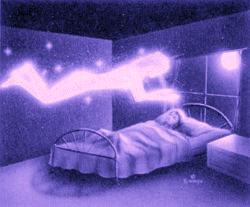 Astral projection is the art, science or accident of detaching your consciousness from your body, in a context other than "death." From the true believer's point of view, it is a key element of mystical experience and is considered a popular technique for
Astral projection is the art, science or accident of detaching your consciousness from your body, in a context other than "death." From the true believer's point of view, it is a key element of mystical experience and is considered a popular technique for 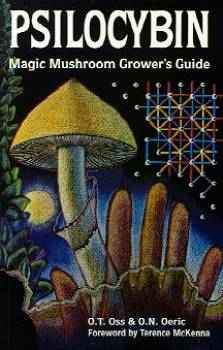
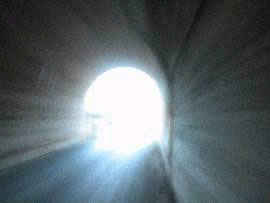 The classic NDE involves a person who is close to death, or clinically dead for some period of time. The person sees a light at the end of a long tunnel, and feels themselves being drawn toward the light. Usually, the light is experienced as a warm and positive energy. Often people report seeing dead loved ones or religious icons like
The classic NDE involves a person who is close to death, or clinically dead for some period of time. The person sees a light at the end of a long tunnel, and feels themselves being drawn toward the light. Usually, the light is experienced as a warm and positive energy. Often people report seeing dead loved ones or religious icons like 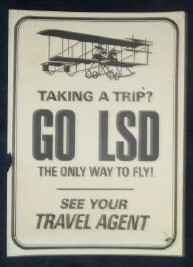 Different sorts of drugs produce different sorts of hallucinations. Within the hallucinogen class, psilocybin-based drugs are among those most prone to causing the subjective experience of "astral projection," in which a person feels their spiritual essence transported out of their body. Although drug experiences tend to be much more varied than NDEs, there is a remarkable amount of consistency, especially when charted among the types of hallucinogens being used.
Different sorts of drugs produce different sorts of hallucinations. Within the hallucinogen class, psilocybin-based drugs are among those most prone to causing the subjective experience of "astral projection," in which a person feels their spiritual essence transported out of their body. Although drug experiences tend to be much more varied than NDEs, there is a remarkable amount of consistency, especially when charted among the types of hallucinogens being used.  Shortly before the time of Christ, a series of religious texts called "apocalypses" began to describe astral travel in the company of angels. In the apocalypses (not to be confused with The
Shortly before the time of Christ, a series of religious texts called "apocalypses" began to describe astral travel in the company of angels. In the apocalypses (not to be confused with The 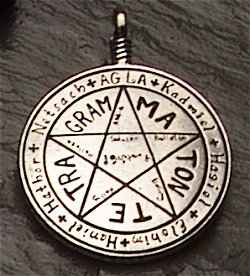 Around the same time,
Around the same time, 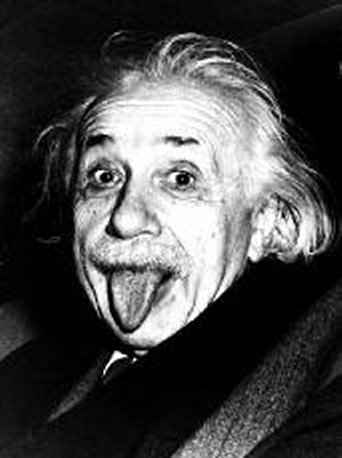 So you can't prove exactly what it is, and you can't prove exactly where it is. Ipso facto, you cannot prohibit it from flying around the universe whenever it damn well pleases—scientifically speaking. There is a very small subset of research on what is called the "locality" of consciousness, which is a thus-far completely confounding effort to determine "where" one's consciousness lives. One such study, for instance, deprived people from their main sensory apparatus and let them "see" only through a camera attached to a small robot. The subjects reported that it felt like their consciousness was "in" the robot instead of their bodies.
So you can't prove exactly what it is, and you can't prove exactly where it is. Ipso facto, you cannot prohibit it from flying around the universe whenever it damn well pleases—scientifically speaking. There is a very small subset of research on what is called the "locality" of consciousness, which is a thus-far completely confounding effort to determine "where" one's consciousness lives. One such study, for instance, deprived people from their main sensory apparatus and let them "see" only through a camera attached to a small robot. The subjects reported that it felt like their consciousness was "in" the robot instead of their bodies.